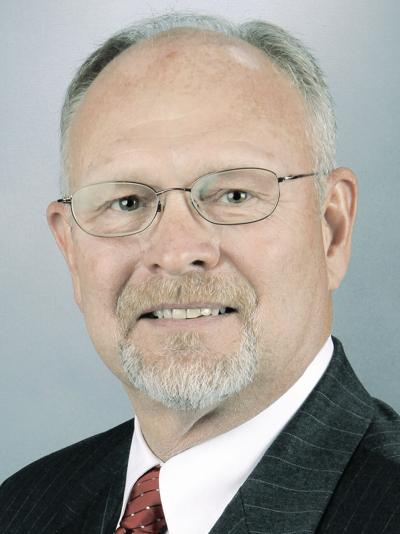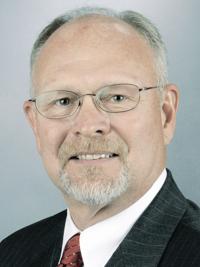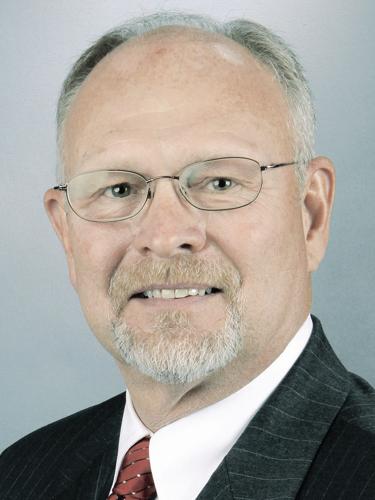The Missouri Legislature is contemplating legislation that would cost owners of higher-fuel-economy vehicles more – in some cases much more – to annually renew their license plates.
SB 201 is sponsored by State Sen. Gary Romine, R-Farmington, whose 3rd District takes in the southern half of Jefferson County.
Romine said the legislation is aimed at ensuring that motorists more equally share the cost of maintaining the state’s road system.
“This would create parity among drivers,” Romine said.
He noted that the state’s gasoline tax bites hardest on drivers who get fewer miles per gallon because they buy more gasoline. Those whose vehicles are more fuel-efficient pay less in tax dollars and drivers whose vehicles use no gasoline – all-electric vehicles, for example – pay no gasoline tax.
“We should all be paying our fair share,” Romine said.
The proposal
Romine’s bill, which has made it out of committee and is now eligible for debate on the Senate floor, would change Missouri’s non-commercial vehicle licensing fees from horsepower-based to a fee schedule that is based, instead, on how many miles per gallon a vehicle gets.
If approved by the Legislature and signed by Gov. Mike Parson, the law would take effect on Aug. 28, 2021.
Missouri is currently the only state to base license fees on horsepower, which is considered an antiquated method, and if the change is made to a mpg fee structure, it would be the first state in the country to adopt that method.
The bill calls for a sliding fee scale for mpg above 29, starting with a base license fee of $24 annually (the fee most Missouri vehicle owners pay now).
For a vehicle that gets 30 mpg (based on industry averaging of city/highway miles) the owner would pay an extra $6, and the fee would go up by $6 for every additional mile, to a maximum of 60 mpg, when the fee reaches $210. For 61 mpg and above, the fee would not rise.
So, if a vehicle gets 35 miles per gallon, the license fee would cost $54, while the owner of a vehicle that gets 29 or fewer mpg would pay only the base of $24.
At the top of the scale, the owner of an all-electric vehicle would pay the $210 fee, plus an existing annual $75 “decal fee,” set by the Legislature in 1998 for electrics. (Owners of plug-in hybrids pay a $37.50 decal fee.) Missouri is among 20 states that currently charge extra fees for fuel-economy vehicles, although similar legislation is reportedly under discussion in another 17 states.
Looking for revenue
So, if Missouri SB 201 is approved, the owner of an all-electric vehicle would be charged $285 annually to keep it legal, more than 10 times the fee charged to owners of vehicles that use the most gasoline.
Romine said the bill is not intended to penalize people who choose a fuel-efficient vehicle as a means to protect the environment.
“We have to change with the times and people should be as environmentally conscious as possible,” he said.
But Missouri can’t afford to ignore its need for transportation funding, Romine said, especially after voters in November 2018 rejected a 10-cent increase to the state’s existing 17-cent gas tax, fourth-lowest in the country.
“The more we have electric cars and hybrids, the more we will see an adverse effect in funding for roads,” Romine said. “Not a day goes by that we don’t talk about it (the need for more revenue).”
Romine is vice chairman of the Senate Committee on Transportation, Infrastructure and Public Safety and the “we” he refers to are the six other members of the committee and officials with the Missouri Department of Transportation.
MoDOT in support
MoDOT Director Patrick McKenna said he supports Romine’s bill, as well as a companion bill, HB 500, that is proposed in the Missouri House. Eventually, one of the bills might take the lead or elements in each might be merged, as they make their way through the Legislature.
Federal funding helped in crafting Missouri’s proposed legislation, McKenna said, noting that the increasing popularity of electric vehicles is not only a state problem but a national one, since federal road funds are mostly derived from the national 18.4-cent-per-gallon (24.4 cents for diesel) fuel tax.
While electric vehicles reportedly make up only 1 percent of the non-commercial market now, analysts expect that to rise to 15 percent by 2030 and perhaps up to 55 percent by 2040, as the cost of the vehicles comes down and the range of travel between charges goes up.
People who drive fuel-efficient vehicles should not get a “free ride on the transportation network,” McKenna said. “Their use of the bridges and roads is the same as everyone else’s.”
So far, Missouri is among a handful of states receiving federal grants to study alternatives to gasoline taxes.
MoDOT received $250,000 in 2017, $2.88 million in 2018 and $1.72 million earlier this year to test new ways to finance highway and bridge projects.
The money comes from the Federal Highway Administration through its Surface Transportation System Funding Alternatives program.
McKenna said a 23-member group called the 21st Century Task Force on Transportation traveled the state for seven months in 2017, collecting information and feedback, and then made an 88-page report to the Legislature. Romine’s proposed legislation lines up with one of the recommendations in the report.
McKenna said those who choose an electric vehicle because they want to save money will still see significant savings, despite a higher license fee.
“This (the legislation) is not a disincentive” to purchase an electric vehicle, he said.
Annual savings on gasoline versus kilowatts is presently calculated at about $3,000, McKenna said, and the $210 license fee is “a small piece,” comparatively.
“They (electric vehicles) are good for the environment and good for pocketbooks,” he said. “The negative impact is that every mile they travel, we’re drawing less revenue.
“We’re not funding even half of what we need to maintain our roads and bridges in the state. This is about equity.”
Romine said the Senate’s fiscal oversight calculated that SB 201 would bring in an additional $62 million to $78 million when it is fully in effect, but McKenna said his department sees it as “revenue neutral,” because gas tax revenue goes down with every purchase of an electric vehicle.
McKenna noted that some other states receiving study grants have been looking at charging drivers by the number of miles they travel, but he sees major issues with that method.
“It would cost 20 percent of the revenue just to collect it (mileage-based fees),” he said. “Plus, there are legitimate privacy concerns.”
Vehicles would need to be tracked to record how many miles they travel and where, since each state would be due revenue for miles traveled on its roads.
McKenna said he is hopeful the legislation will pass.
“It’s good policy,” he said.
Jefferson County has another important voice in the transportation funding debate in 114th District State Rep. Becky Ruth, R-Festus, who chairs the House Transportation Committee.
Contacted in February, she said she had not yet had an opportunity to compare Romine’s bill with HB 500, sponsored by 61st District State Rep. Aaron Griesheimer, R-Washington.
“There are an array of bills out there on ways to improve our infrastructure, and we will be looking at the merits of each of them,” Ruth said. “There is not going to be one miracle thing that is going to fix this.”
Opposition
Katherine Stainken, policy director for Plug In America, a nonprofit that represents drivers of electric vehicles across the U.S., hopes Missouri’s proposed legislation does not become law.
While she agrees that alternatives to the gasoline tax will be needed as electric vehicles become more popular, she views SB 201 as unfair.
“Right now, the highest registration fee is in Georgia (at) $200, and a lot of policymakers think that was a mistake and want to reduce it to $25,” she said. “This kind of policy penalizes EV drivers and won’t be sustainable in the long run.”
Stainken said fees based on miles traveled or by weight make more sense, and also noted that gasoline taxes in most states (like Missouri) have not been indexed for inflation.
“That’s what they should be looking to address,” she said.
“People realize that the future of transportation is electric, whether they want it to be or not, and this (transportation funding) needs to be a nationwide conversation,” she said.
She suggested that Missouri table action and study the issue further. A drastically higher license fee for fuel-efficient cars “is just putting a Band-Aid on the issue,” Stainken said.





